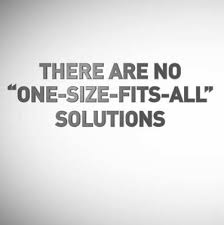One size doesn’t fit all
CEO Blog – Ingrid Stonhill, July 2019.
I enjoy regular, wide-ranging chats with a particular Traditional Owner here in Maningrida. His knowledge and wisdom never cease to amaze me. During a recent chat he cited cultural awareness commentators Quappe and Cantatore:
“A fish only discovers its need for water when it is no longer in it. Our own culture is like water for the fish. It sustains us. We live and breathe through it.”
I was impressed by the quote and it reminded me of why Bawinanga Aboriginal Corporation exists.
BAC was born out of the homelands movement. In 1972 the Whitlam Labor Government’s self-determination policy recognised the right of indigenous Australians to make decisions on issues relating to them and to manage their own affairs. This included where and how they lived within their own culture.
At BAC we work across 32 homelands, around 80 clans and 15 different languages are spoken; 16 if you include English. So considering Quappe and Cantatore’s sentiment, there are many different cultural needs to sustain the people in our region.
Here is where policy-making for remote communities gets tricky. In a world where politicians have limited contact with isolated Australian communities and everyone is time-poor and cash strapped, how do you keep up the good fight against a pervasive ‘one size fits all approach’ to developing policies and funding proposals that shape our remote lives.
Drawing from Quappe and Cantatore’s consideration of cultural diversity’s benefits, they ask us to consider a few major points:
to consider a few major points:
“Becoming aware of our cultural dynamics is a difficult task because culture is not conscious to us. Since we are born we have learned to see and do things at an unconscious level. Our experiences, our values and our cultural background lead us to see and do things in a certain way. Sometimes we have to step outside of our cultural boundaries in order to realize the impact that our culture has on our behaviour.”
As CEO of BAC, living and working with so many clan groups that often express conflicting views, I frequently spend time outside my cultural boundaries, learning and embracing new viewpoints.
My job means I also have to front up to Territory and Federal politicians, to have important conversations, that I hope will uphold BAC’s founding values and the commitments of past governments.
I have to keep asking white paper and policy authors to remember that we are not all the same; differences are important and there are different ways to reach the same goal. Each situation should require these decision-makers to look through a different prism when determining the path to a solution.
My frustration is how do we, living in a very remote part of Australia, get to access the right decision-makers? How do we get the airtime to remind them about what was promised by self-determination and how it raised an expectation of service delivery that is not being met? How to transport a taste of our remarkable culture to political offices in Darwin and Canberra so they get to experience a life so very different from their own?
Better yet, how do we get the decision-makers to at least come and visit us so they can see we aren’t all the same and one size does not fit all?
